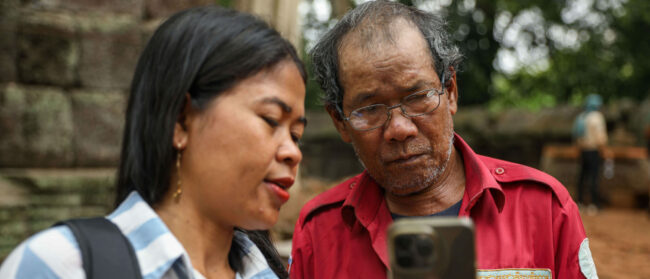“The King is Dead – Long Live the King”. This seemingly meaningless phrase, uttered throughout history on the passing of those set above their people to reign by right of birth or conquest, holds within it the undying secret to the authority, legitimacy and immortality claimed by royalty the world over: a kingdom without end, unmoved by time or tragedy, enduring beyond the frailty of mortal rulers.
With the passing of Thailand’s King Bhumibol Adulyadej, a man elevated to near-sainthood in the eyes of his subjects after 70 years on the throne, the nation has been beset by speculation about what the death of the king, relentlessly propped up as a pillar of political stability, will mean for Thailand’s future.
The power behind the throne
Still deeply divided by the 2014 coup that ended six months of political crises with the establishment of a military junta, the nation is split between supporters of the ousted Shinawatra dynasty and those in favour of the royalist military regime. For almost half a century, King Bhumibol appeared to step in and out of the maelstrom of Thai politics with a statesman’s gravitas, a few words of support apparently enough to raise a regime to power – or topple one. With Thailand now plunged into a year of mourning and the crown prince, a figure who commands little respect even among the staunchest monarchists, in line for a coronation at the time of writing, many Thais are feeling the loss keenly.

But for those who challenge the perception that the ruling monarch remains the arbiter of the nation’s fate after decades of populist democratic movements and authoritarian military strongmen, Bhumibol’s death is little more than an inconvenience to the political, economic and bureaucratic institutions that have entrenched themselves as the true powers behind a crumbling throne.
Lee Jones, a senior lecturer in international politics at Queen Mary University of London, told Southeast Asia Globe that the myth of the monarch steering the course of Thai politics had been greatly exaggerated. “I think there’s not a great deal of strong, publicly available evidence to suggest the king was an independent actor with real power,” he said.
Once heralded as a model for monarchs across the world, Bhumibol’s sporadic interventions in Thailand’s turbulent political history are not held in the esteem they once were. In the space of three years during the chaotic political crises of the 1970s, the king went from sheltering student protesters from military gunfire within the palace walls to standing by as armed royalist militias stormed Bangkok’s Thammasat University in a brutal anti-communist purge that saw dozens of students gunned down and lynched by rightwing paramilitary mobs. Similarly, his more recent endorsements – first of populist media magnate Thaksin Shinawatra’s government, then of the military junta that drove him from office in 2006 – have challenged the notion that Thailand’s political and military elite still seek the king’s blessing in their quest for power. “It’s somebody who’s being used by political forces to rationalise whatever they want to do,” said Jones.

The keys to the kingdom
For Patrick Jory, though, a senior lecturer at the University of Queensland, Australia, specialising in Thai history and politics, the power of the king should not be underestimated. “He has enormous political influence,” he said. “As the monarch in a Kingdom, he exerts enormous authority. But not directly. Indirectly, through people often appointed by the king or the privy council.”
Jory referenced what political science professor Duncan McCargo has described as Thailand’s ‘network monarchy’, a system focused on exerting political influence via a tightly bound network of proxies in the nation’s halls of power, through which the monarch could make his will known.
Writing in the Pacific Review more than a decade ago, McCargo described an arrangement built on private patronage over political procedure. “Network monarchy is inherently illiberal, because it advocates reliance on ‘good men’, and the marginalisation of formal political institutions or procedures. Low priority is given to democratic principles such as the rule of law and popular sovereignty; but King Bhumibol’s core achievement lay in securing a high degree of relative autonomy for the monarchy within Thailand’s increasingly pluralist order.”
It is these networks, Jory argued, that the soon-to-be king – the controversial Crown Prince Maha Vajiralongkorn – would have to form should he wish to even approach the level of autonomy his father once possessed. For his critics though – and even with Thailand’s strict prohibitions on insulting the royal family, there are many – the heir apparent’s playboy lifestyle, alleged criminal links and apparent disdain for public service may plunge the monarchy into a crisis from which it cannot return.
The rule of unreason
According to Jory, King Bhumibol’s nigh-celestial legacy owed more to personality than palace mystique. “It would be impossible for any successor to live up to the former monarch,” he said. “And he’s had this enormous charismatic influence, particularly over the last 30 or 40 years of his reign, where the mass media has inculcated this very intensive personality cult. So I think you need to separate the person of the former king and the institution of the monarchy.”
Giles Ji Ungpakorn, though, a Thai-British academic and political activist driven into exile by Thailand’s severe lèse majesté laws, said the cult-like reverence for the late king would likely overwhelm whatever shortcomings his son may possess. He described the wayward crown prince as a potentially valuable puppet of Prime Minister Prayuth Chan-ocha’s ruling military junta.
“He’ll be even more pliable, because he’s not interested in social affairs and affairs of the state at all,” Ungpakorn said. “They’re desperately trying to cultivate his image, and that may be a little difficult with some people; nevertheless, the whole ideology of the monarchy doesn’t require reason. It’s almost a kind of extreme religion, and therefore even though the crown prince is the king, the monarchy can still be holy and associated with the late king and can still be used by the military – and it will be used by the military.”
Jones suggested that the crown prince’s sketchy history put his usefulness to the junta at risk, forcing it to turn to more modern institutions – such as the latest military-drafted constitution, ratified by popular referendum earlier this year under the regime’s watchful eyes – to shore up its legitimacy. “That’s not where the problem lies in Thai politics – it’s not the power of the king, it’s the capacity of genuinely powerful social and political forces to make use of the monarchy as a weapon, if you like.”
Once the apparent rubber stamp for a rotating roster of military regimes, a compromised king could potentially weaken the decades-old alliance between military and monarch, said Jones: “If you’ve got a symbolic weapon, but the symbol is in decline, then it’s less useful as a weapon.”
The high cost of chaos
Harder to predict is the effect of the succession on Thailand’s already struggling economy. Despite an ambitious 3.5% GDP growth target for 2017, a drop off in both tourism and Thai exports mean the military’s promise to make Thailand a first-world nation seems far from reality.
Ungpakorn maintained that unless the junta made an effort to bridge the deep-seated political divide, the instability it causes would continue to depress Thailand’s economic recovery. Jones was harsher in his assessment of the junta’s economic record. “The really important thing economically is how long the military regime stays in power, and how stable the transition is back to a constrained democratic system, which I presume will happen at the end of this one-year period,” Jones said. “The military regime is very incompetent, economically, and the economy has been doing very badly under military rule. The longer that goes on, the less business confidence there is.”
A fear of the potential fallout from the king’s passing on Thailand’s ongoing political instability has been cited as a factor in the timing of the military takeover two years ago. “Obviously it’s not business as usual – it can’t be – but I think most observers of Thai politics understand that the reason the military stepped in in 2014 was to make sure that they would be in control once the succession took place, and so they’ll keep a very tight lid on any dissent,” Jory said.
Ungpakorn warned that the junta could well attempt to exploit the mass mourning following the king’s death to push back the timetable of its transition back to democracy. “I think the junta are very likely to postpone elections,” he said. “So if the funeral is taking place in a year’s time, then the elections won’t take place within the year. And then if the crown prince, his crowning ceremony is after that, then, well, postpone it until after that. So it’s quite possible that elections will be postponed for two, maybe three years.”
But Ungpakorn speculated that those Thais for whom the monarchy had become little more than a blunt instrument in the hands of military strongmen would not stand idly by as the junta propped up a puppet king. “There is a groundswell of republican feeling, although it is extremely difficult to express it, especially right now when you have mobs of royalist fanatics beating people up,” he said.
One thing that seems certain is that once the mourning period has passed, the struggle for the hearts and minds of Thailand’s people is unlikely to fade with the memory of the departed king. “I think there is quite a high potential for a re-emergence of these sort of political movements and the political divisions we have seen over the past decade, they will reappear,” said Jory. “The issues really haven’t been resolved.”


